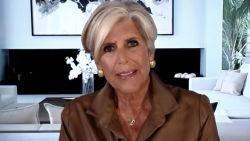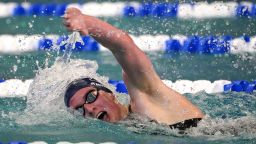- Source:
CNN
"
data-fave-thumbnails="{"big": { "uri": "https://media.cnn.com/api/v1/images/stellar/prod/210621113012-toobin-scotus-ruling-6-21-2021.jpg?q=x_2,y_0,h_1078,w_1915,c_crop/h_540,w_960" }, "small": { "uri": "https://media.cnn.com/api/v1/images/stellar/prod/210621113012-toobin-scotus-ruling-6-21-2021.jpg?q=x_2,y_0,h_1078,w_1915,c_crop/h_540,w_960" } }"
data-vr-video="false"
data-show-html="
AT THIS HOUR
"
data-byline-html="
"
data-timestamp-html="
Published
11:33 AM EDT, Wed March 23, 2022
"
data-check-event-based-preview=""
data-is-vertical-video-embed="false"
data-network-id=""
data-publish-date="2021-06-21T16:36:17Z"
data-video-section="politics"
data-canonical-url="https://www.cnn.com/videos/politics/2021/06/21/ncaa-supreme-court-student-athletes-toobin-ath-vpx.cnn"
data-branding-key=""
data-video-slug="ncaa supreme court student athletes toobin ath vpx"
data-first-publish-slug="ncaa supreme court student athletes toobin ath vpx"
data-video-tags="government and public administration,government bodies and offices,government organizations - us,politics,us federal court system,us federal government,us supreme court,athletes,education,jeffrey toobin,misc people,sports and recreation"
data-details="">
Toobin on Supreme Court ruling: I was struck by Kavanaugh's opinion
Now playing
- Source:
CNN
- Source:
CNN
"
data-fave-thumbnails="{"big": { "uri": "https://media.cnn.com/api/v1/images/stellar/prod/240411174751-maternity-leave-still-2.jpg?c=16x9&q=h_540,w_960,c_fill" }, "small": { "uri": "https://media.cnn.com/api/v1/images/stellar/prod/240411174751-maternity-leave-still-2.jpg?c=16x9&q=h_540,w_960,c_fill" } }"
data-vr-video="false"
data-show-html=""
data-byline-html="
"
data-timestamp-html="
Published
11:33 AM EDT, Wed March 23, 2022
"
data-check-event-based-preview=""
data-is-vertical-video-embed="false"
data-network-id=""
data-publish-date="2024-04-11T17:26:03Z"
data-video-section="business"
data-canonical-url="https://www.cnn.com/videos/business/2024/04/11/maternity-leave-ooo-how-to-orig-ag.cnn"
data-branding-key="lessons-in-leadership"
data-video-slug="maternity leave ooo how to orig ag"
data-first-publish-slug="maternity leave ooo how to orig ag"
data-video-tags=""
data-details="">
How to craft the perfect maternity leave out of office message
Now playing
- Source:
CNN
- Source:
CNN
"
data-fave-thumbnails="{"big": { "uri": "https://media.cnn.com/api/v1/images/stellar/prod/240421214939-microsoft-ai-model.jpg?c=16x9&q=h_540,w_960,c_fill" }, "small": { "uri": "https://media.cnn.com/api/v1/images/stellar/prod/240421214939-microsoft-ai-model.jpg?c=16x9&q=h_540,w_960,c_fill" } }"
data-vr-video="false"
data-show-html=""
data-byline-html="
"
data-timestamp-html="
Published
11:33 AM EDT, Wed March 23, 2022
"
data-check-event-based-preview=""
data-is-vertical-video-embed="false"
data-network-id=""
data-publish-date="2024-04-22T01:50:44Z"
data-video-section="business"
data-canonical-url="https://www.cnn.com/videos/business/2024/04/22/microsoft-ai-tool-animates-faces-duffy-digvid.cnn"
data-branding-key=""
data-video-slug="microsoft ai tool animates faces duffy digvid"
data-first-publish-slug="microsoft ai tool animates faces duffy digvid"
data-video-tags=""
data-details="">
CNN writer explains how Microsoft's new AI model works
Now playing
- Source:
CNN
- Source:
CNN
"
data-fave-thumbnails="{"big": { "uri": "https://media.cnn.com/api/v1/images/stellar/prod/240412065935-toyota-david-christ-01.jpg?c=16x9&q=h_540,w_960,c_fill" }, "small": { "uri": "https://media.cnn.com/api/v1/images/stellar/prod/240412065935-toyota-david-christ-01.jpg?c=16x9&q=h_540,w_960,c_fill" } }"
data-vr-video="false"
data-show-html=""
data-byline-html="
"
data-timestamp-html="
Published
11:33 AM EDT, Wed March 23, 2022
"
data-check-event-based-preview=""
data-is-vertical-video-embed="false"
data-network-id=""
data-publish-date="2024-04-12T11:14:48Z"
data-video-section="business"
data-canonical-url="https://www.cnn.com/videos/business/2024/04/11/toyota-executive-electric-vehicles-hybrids-cprog-gr-orig.cnn"
data-branding-key="before-the-bell"
data-video-slug="toyota executive electric vehicles hybrids cprog gr orig"
data-first-publish-slug="toyota executive electric vehicles hybrids cprog gr orig"
data-video-tags=""
data-details="">
Toyota sells only two electric vehicles. Executive insists they're not holding back
Now playing
- Source:
CNN
- Source:
CNN
"
data-fave-thumbnails="{"big": { "uri": "https://media.cnn.com/api/v1/images/stellar/prod/240227142406-sg-brain-implant-07.jpg?c=16x9&q=h_540,w_960,c_fill" }, "small": { "uri": "https://media.cnn.com/api/v1/images/stellar/prod/240227142406-sg-brain-implant-07.jpg?c=16x9&q=h_540,w_960,c_fill" } }"
data-vr-video="false"
data-show-html=""
data-byline-html="
"
data-timestamp-html="
Published
11:33 AM EDT, Wed March 23, 2022
"
data-check-event-based-preview=""
data-is-vertical-video-embed="false"
data-network-id=""
data-publish-date="2024-02-28T11:14:46Z"
data-video-section="business"
data-canonical-url="https://www.cnn.com/videos/business/2024/02/27/synchron-brain-implant-patients-me-cprog-orig.cnn"
data-branding-key=""
data-video-slug="synchron brain implant patients me cprog orig"
data-first-publish-slug="synchron brain implant patients me cprog orig"
data-video-tags=""
data-details="">
An implant in his brain lets him do incredible tasks with his thoughts
Now playing
- Source:
CNN
- Source:
CNN
"
data-fave-thumbnails="{"big": { "uri": "https://media.cnn.com/api/v1/images/stellar/prod/230825171537-dv-drone-heat-island-1.jpg?c=16x9&q=h_540,w_960,c_fill" }, "small": { "uri": "https://media.cnn.com/api/v1/images/stellar/prod/230825171537-dv-drone-heat-island-1.jpg?c=16x9&q=h_540,w_960,c_fill" } }"
data-vr-video="false"
data-show-html=""
data-byline-html="
"
data-timestamp-html="
Published
11:33 AM EDT, Wed March 23, 2022
"
data-check-event-based-preview=""
data-is-vertical-video-embed="false"
data-network-id=""
data-publish-date="2023-08-30T13:30:48Z"
data-video-section="business"
data-canonical-url="https://www.cnn.com/videos/business/2023/08/25/urban-heat-island-effect-drones-contd-orig-nb.cnn"
data-branding-key="project-planet"
data-video-slug="urban heat island effect drones contd orig nb"
data-first-publish-slug="urban heat island effect drones contd orig nb"
data-video-tags=""
data-details="">
'We're cooking our cities': These drones map 150-degree temperatures in urban areas
Now playing
- Source:
CNN
- Source:
CNN
"
data-fave-thumbnails="{"big": { "uri": "https://media.cnn.com/api/v1/images/stellar/prod/240409202832-suze-orman-vpx.jpg?c=16x9&q=h_540,w_960,c_fill" }, "small": { "uri": "https://media.cnn.com/api/v1/images/stellar/prod/240409202832-suze-orman-vpx.jpg?c=16x9&q=h_540,w_960,c_fill" } }"
data-vr-video="false"
data-show-html="
Erin Burnett Out Front
"
data-byline-html="
"
data-timestamp-html="
Published
11:33 AM EDT, Wed March 23, 2022
"
data-check-event-based-preview=""
data-is-vertical-video-embed="false"
data-network-id=""
data-publish-date="2024-04-10T00:47:37Z"
data-video-section="business"
data-canonical-url="https://www.cnn.com/videos/economy/2024/04/09/suze-orman-finances-gold-bars-costco-inflation-economy-ebof-vpx.cnn"
data-branding-key=""
data-video-slug="suze orman finances gold bars costco inflation economy ebof vpx"
data-first-publish-slug="suze orman finances gold bars costco inflation economy ebof vpx"
data-video-tags=""
data-details="">
Costco is running out of gold bars to sell. Financial expert reacts
Now playing
- Source:
CNN
- Source:
CNN
"
data-fave-thumbnails="{"big": { "uri": "https://media.cnn.com/api/v1/images/stellar/prod/240330201707-easter-chocolate.jpg?c=16x9&q=h_540,w_960,c_fill" }, "small": { "uri": "https://media.cnn.com/api/v1/images/stellar/prod/240330201707-easter-chocolate.jpg?c=16x9&q=h_540,w_960,c_fill" } }"
data-vr-video="false"
data-show-html=""
data-byline-html="
"
data-timestamp-html="
Published
11:33 AM EDT, Wed March 23, 2022
"
data-check-event-based-preview=""
data-is-vertical-video-embed="false"
data-network-id=""
data-publish-date="2024-03-31T00:30:19Z"
data-video-section="business"
data-canonical-url="https://www.cnn.com/videos/business/2024/03/30/cocoa-chocolate-pricing-surge-easter-rodriguez-nr-vpx.cnn"
data-branding-key=""
data-video-slug="cocoa chocolate pricing surge easter rodriguez nr vpx"
data-first-publish-slug="cocoa chocolate pricing surge easter rodriguez nr vpx"
data-video-tags="agricultural commodities,agriculture,agriculture, forestry, and commercial fishing,banking, finance and investments,business and industry sectors,business, economy and trade,commodity markets,consumer products,domestic alerts,domestic-business,easter,financial markets and investing,food and drink,food products,holidays and observances,iab-agriculture,iab-business,iab-business and finance,iab-business banking & finance,iab-commodities,iab-desserts and baking,iab-economy,iab-financial industry,iab-food & drink,iab-industries,international alerts,international-business,kinds of foods and beverages,price increases,sweets and desserts"
data-details="">
The price of chocolate is soaring. Here's why
Now playing
- Source:
CNN
- Source:
CNN
"
data-fave-thumbnails="{"big": { "uri": "https://media.cnn.com/api/v1/images/stellar/prod/240330093355-smr-piggy-bank-tuition.jpg?c=16x9&q=h_540,w_960,c_fill" }, "small": { "uri": "https://media.cnn.com/api/v1/images/stellar/prod/240330093355-smr-piggy-bank-tuition.jpg?c=16x9&q=h_540,w_960,c_fill" } }"
data-vr-video="false"
data-show-html="
Smerconish
"
data-byline-html="
"
data-timestamp-html="
Published
11:33 AM EDT, Wed March 23, 2022
"
data-check-event-based-preview=""
data-is-vertical-video-embed="false"
data-network-id=""
data-publish-date="2024-03-30T13:54:58Z"
data-video-section="us"
data-canonical-url="https://www.cnn.com/videos/us/2024/03/30/smr-higher-cost-of-higher-ed.cnn"
data-branding-key=""
data-video-slug="SMR Higher cost of higher ed"
data-first-publish-slug="SMR Higher cost of higher ed"
data-video-tags=""
data-details="">
As college cost passes $90K, 'the middle class is losing ground'
Now playing
- Source:
CNN
- Source:
CNN
"
data-fave-thumbnails="{"big": { "uri": "https://media.cnn.com/api/v1/images/stellar/prod/240329135417-josh-flagg-032924-cnc.jpg?c=16x9&q=h_540,w_960,c_fill" }, "small": { "uri": "https://media.cnn.com/api/v1/images/stellar/prod/240329135417-josh-flagg-032924-cnc.jpg?c=16x9&q=h_540,w_960,c_fill" } }"
data-vr-video="false"
data-show-html=""
data-byline-html="
"
data-timestamp-html="
Published
11:33 AM EDT, Wed March 23, 2022
"
data-check-event-based-preview=""
data-is-vertical-video-embed="false"
data-network-id=""
data-publish-date="2024-03-29T18:32:08Z"
data-video-section="business"
data-canonical-url="https://www.cnn.com/videos/business/2024/03/29/home-insurance-costs-josh-flagg-intvu-cnc-vpx.cnn"
data-branding-key=""
data-video-slug="home insurance costs josh flagg intvu cnc vpx"
data-first-publish-slug="home insurance costs josh flagg intvu cnc vpx"
data-video-tags="accidents,accidents, disasters and safety,brand safety-nsf accidents and disasters,brand safety-nsf sensitive,business and industry sectors,business, economy and trade,california,continents and regions,domestic alerts,domestic-business,domestic-health and science,domestic-us news,economic indicators,economy and economic indicators,environment and natural resources,environmental accidents and disasters,home prices,household insurance,iab-business and finance,iab-disasters,iab-economy,iab-environment,iab-home insurance,iab-houses,iab-housing market,iab-industries,iab-insurance,iab-personal finance,iab-real estate,iab-real estate buying and selling,iab-real estate industry,iab-science,iab-weather,insurance,international alerts,international-business,international-health and science,international-us news,los angeles,north america,pollution,real estate,real estate sector performance,severe weather,southern california,southwestern united states,the americas,united states,weather"
data-details="">
'Million Dollar Listing LA' star reveals how clients are insuring homes amid rising rates
Now playing
- Source:
CNN
- Source:
CNN
"
data-fave-thumbnails="{"big": { "uri": "https://media.cnn.com/api/v1/images/stellar/prod/240322221056-wozniak.jpg?c=16x9&q=h_540,w_960,c_fill" }, "small": { "uri": "https://media.cnn.com/api/v1/images/stellar/prod/240322221056-wozniak.jpg?c=16x9&q=h_540,w_960,c_fill" } }"
data-vr-video="false"
data-show-html=""
data-byline-html="
"
data-timestamp-html="
Published
11:33 AM EDT, Wed March 23, 2022
"
data-check-event-based-preview=""
data-is-vertical-video-embed="false"
data-network-id=""
data-publish-date="2024-03-23T02:27:35Z"
data-video-section="business"
data-canonical-url="https://www.cnn.com/videos/business/2024/03/23/steve-wozniak-apple-cofounder-tiktok-lcl-sot-vpx.cnn"
data-branding-key=""
data-video-slug="steve wozniak apple cofounder tiktok lcl sot vpx"
data-first-publish-slug="steve wozniak apple cofounder tiktok lcl sot vpx"
data-video-tags="apple inc,business figures,companies,digital privacy,digital security,domestic alerts,domestic-business,domestic-us politics,government and public administration,government organizations - us,iab-brand suitability and risk,iab-computing,iab-information and network security,iab-law,iab-low risk,iab-online piracy (low),iab-politics,iab-sensitive topics,iab-technology & computing,international alerts,international-business,international-us politics,law and legal system,legislation,politics,privacy rights,steve wozniak,technology,tiktok,us congress"
data-details="">
Apple co-founder calls out 'hypocrisy' of politicians calling for TikTok ban
Now playing
- Source:
CNN
- Source:
CNN
"
data-fave-thumbnails="{"big": { "uri": "https://media.cnn.com/api/v1/images/stellar/prod/231207084437-01-trump-new-york-court-october-25-2023.jpg?c=16x9&q=h_540,w_960,c_fill" }, "small": { "uri": "https://media.cnn.com/api/v1/images/stellar/prod/231207084437-01-trump-new-york-court-october-25-2023.jpg?c=16x9&q=h_540,w_960,c_fill" } }"
data-vr-video="false"
data-show-html=""
data-byline-html="
"
data-timestamp-html="
Published
11:33 AM EDT, Wed March 23, 2022
"
data-check-event-based-preview=""
data-is-vertical-video-embed="false"
data-network-id=""
data-publish-date="2024-03-22T12:43:25Z"
data-video-section="business"
data-canonical-url="https://www.cnn.com/videos/business/2024/03/22/trump-truth-social-prepares-to-go-public-egan-cnntm-vpx.cnn"
data-branding-key=""
data-video-slug="trump truth social prepares to go public egan cnntm vpx"
data-first-publish-slug="trump truth social prepares to go public egan cnntm vpx"
data-video-tags="companies,domestic alerts,domestic-business,domestic-us politics,donald trump,iab-computing,iab-internet,iab-politics,iab-social networking,iab-technology & computing,international alerts,international-business,international-us politics,political figures - us,social media,society,trump media & technology group"
data-details="">
Donald Trump may be on the verge of a massive financial win
Now playing
- Source:
CNN
- Source:
CNN
"
data-fave-thumbnails="{"big": { "uri": "https://media.cnn.com/api/v1/images/stellar/prod/200923234133-zhong-shanshan-file-restricted.jpg?q=x_21,y_173,h_736,w_1308,c_crop/h_540,w_960" }, "small": { "uri": "https://media.cnn.com/api/v1/images/stellar/prod/200923234133-zhong-shanshan-file-restricted.jpg?q=x_21,y_173,h_736,w_1308,c_crop/h_540,w_960" } }"
data-vr-video="false"
data-show-html=""
data-byline-html="
"
data-timestamp-html="
Published
11:33 AM EDT, Wed March 23, 2022
"
data-check-event-based-preview=""
data-is-vertical-video-embed="false"
data-network-id=""
data-publish-date="2024-03-21T05:30:53Z"
data-video-section="business"
data-canonical-url="https://www.cnn.com/videos/business/2024/03/21/china-nongfu-spring-boycott-stewart-lkl-hnk-vpx.cnn"
data-branding-key=""
data-video-slug="china nongfu spring boycott stewart lkl hnk vpx"
data-first-publish-slug="china nongfu spring boycott stewart lkl hnk vpx"
data-video-tags="beverages,bottled water,boycotts,business and industry sectors,business, economy and trade,consumer products,food and drink,iab-food & drink,iab-non-alcoholic beverages,kinds of foods and beverages"
data-details="">
See why some Chinese people are boycotting a popular brand
Now playing
- Source:
CNN
- Source:
CNN
"
data-fave-thumbnails="{"big": { "uri": "https://media.cnn.com/api/v1/images/stellar/prod/240105150357-01-nyse-010324.jpg?c=16x9&q=h_540,w_960,c_fill" }, "small": { "uri": "https://media.cnn.com/api/v1/images/stellar/prod/240105150357-01-nyse-010324.jpg?c=16x9&q=h_540,w_960,c_fill" } }"
data-vr-video="false"
data-show-html="
The Lead
"
data-byline-html="
"
data-timestamp-html="
Published
11:33 AM EDT, Wed March 23, 2022
"
data-check-event-based-preview=""
data-is-vertical-video-embed="false"
data-network-id=""
data-publish-date="2024-03-22T02:01:30Z"
data-video-section="business"
data-canonical-url="https://www.cnn.com/videos/business/2024/03/22/dow-stock-market-record-chatterley-lead-vpx.cnn"
data-branding-key="before-the-bell"
data-video-slug="dow stock market record chatterley lead vpx"
data-first-publish-slug="dow stock market record chatterley lead vpx"
data-video-tags="banking, finance and investments,business, economy and trade,celebrities,domestic alerts,domestic-business,domestic-entertainment,economy and economic indicators,financial markets and investing,iab-business,iab-business and finance,iab-business banking & finance,iab-economy,iab-financial industry,iab-industries,iab-personal finance,iab-personal investing,iab-stocks and bonds,international alerts,international-business,international-entertainment,julia chatterley,securities trading,stock markets"
data-details="">
The stock market set a new record. Here's what that means for the economy
Now playing
- Source:
CNN
- Source:
CNN
"
data-fave-thumbnails="{"big": { "uri": "https://media.cnn.com/api/v1/images/stellar/prod/240320130730-ewaste-1.jpg?c=16x9&q=h_540,w_960,c_fill" }, "small": { "uri": "https://media.cnn.com/api/v1/images/stellar/prod/240320130730-ewaste-1.jpg?c=16x9&q=h_540,w_960,c_fill" } }"
data-vr-video="false"
data-show-html=""
data-byline-html="
"
data-timestamp-html="
Published
11:33 AM EDT, Wed March 23, 2022
"
data-check-event-based-preview=""
data-is-vertical-video-embed="false"
data-network-id=""
data-publish-date="2024-03-20T14:10:33Z"
data-video-section="business"
data-canonical-url="https://www.cnn.com/videos/business/2024/03/20/e-waste-recycling-cell-phones-cobalt-lon-orig-ao.cnn"
data-branding-key="project-planet"
data-video-slug="e waste recycling cell phones cobalt lon orig ao"
data-first-publish-slug="e waste recycling cell phones cobalt lon orig ao"
data-video-tags="business and industry sectors,business, economy and trade,domestic alerts,domestic-business,domestic-health and science,environment and natural resources,environmentalism,iab-business and finance,iab-environment,iab-industries,iab-science,iab-technology & computing,iab-telecommunications industry,international alerts,international-business,international-health and science,technology,telecommunications industry,telecommunications services,telephone rates,telephone services"
data-details="">
Why you should think twice before buying a new phone
Now playing
- Source:
CNN
- Source:
CNN
"
data-fave-thumbnails="{"big": { "uri": "https://media.cnn.com/api/v1/images/stellar/prod/240223210059-donald-trump-february-23-2024-rock-hill-south-carolina.jpg?c=16x9&q=h_540,w_960,c_fill" }, "small": { "uri": "https://media.cnn.com/api/v1/images/stellar/prod/240223210059-donald-trump-february-23-2024-rock-hill-south-carolina.jpg?c=16x9&q=h_540,w_960,c_fill" } }"
data-vr-video="false"
data-show-html="
Erin Burnett Out Front
"
data-byline-html="
"
data-timestamp-html="
Published
11:33 AM EDT, Wed March 23, 2022
"
data-check-event-based-preview=""
data-is-vertical-video-embed="false"
data-network-id=""
data-publish-date="2024-03-20T00:36:49Z"
data-video-section="business"
data-canonical-url="https://www.cnn.com/videos/business/2024/03/19/trump-bond-properties-value-sell-bess-freedman-ebof-vpx.cnn"
data-branding-key=""
data-video-slug="trump bond properties value sell bess freedman ebof vpx"
data-first-publish-slug="trump bond properties value sell bess freedman ebof vpx"
data-video-tags="business and industry sectors,business, economy and trade,destinations and attractions,domestic alerts,domestic-us politics,donald trump,erin burnett,iab-business and finance,iab-industries,iab-politics,iab-real estate,iab-real estate industry,international alerts,international-us politics,mar-a-lago,misc people,misc places,points of interest,political figures - us,real estate"
data-details="">
Real estate CEO says Trump could sell Mar-a-Lago 'quickly' to secure $464 million bond
Now playing
- Source:
CNN






















